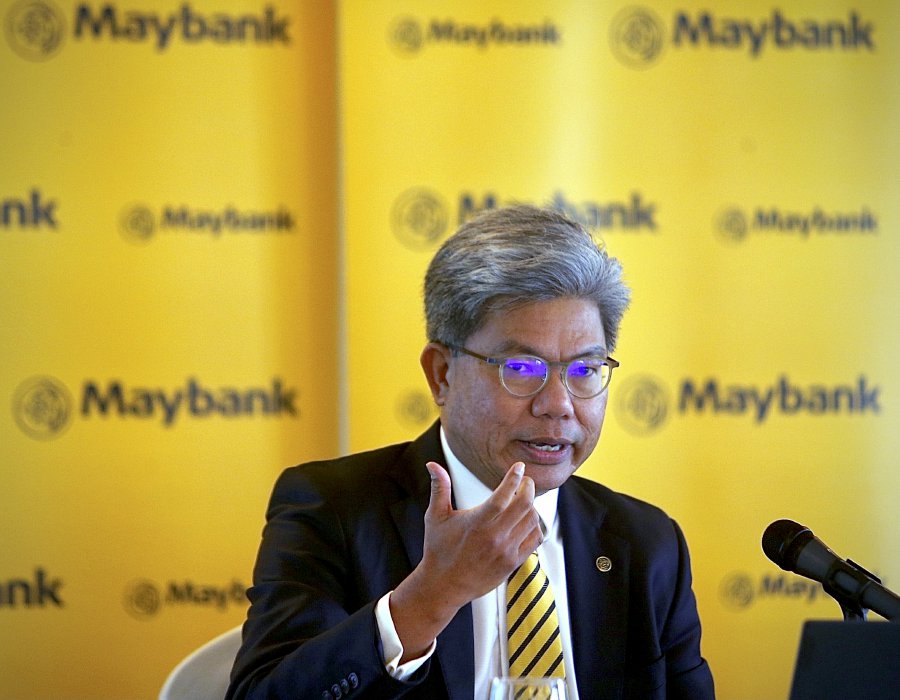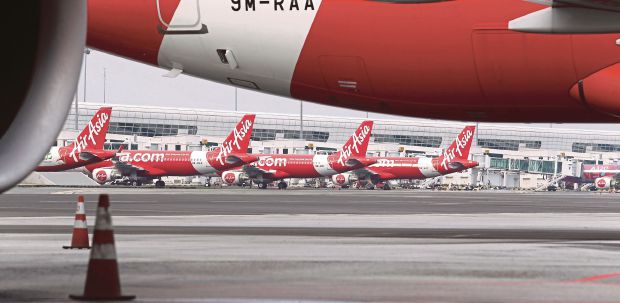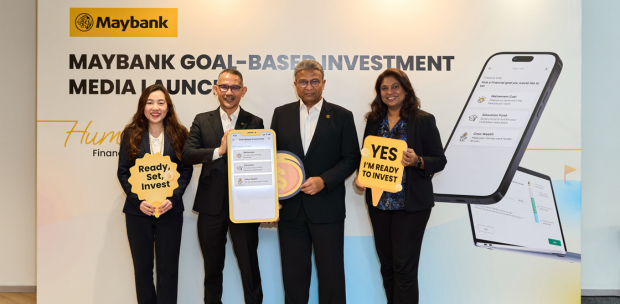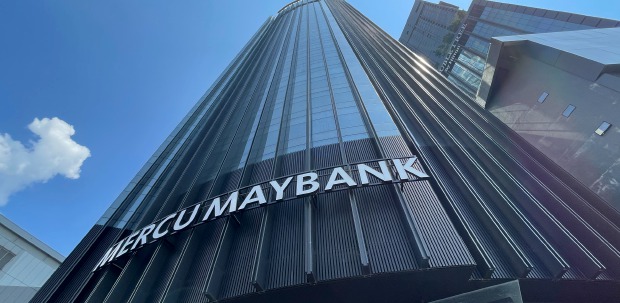KUALA LUMPUR: Malayan Banking Bhd (Maybank) has lowered its return on equity (ROE) target to between 11 and 12 per cent under its refined M25+ strategy from the previous levels of between 13 and 15 per cent.
Group president and chief executive officer Datuk Khairussaleh Ramli said this was due to various changes that had taken place globally and for the group to remain agile to drive sustainable returns post-pandemic.
"It was primarily premised on the changes that we have seen globally such as geopolitical uncertainties.
"That is why we believe in the next few years the new ROE will be more realistic given the investments we are also making.
"Despite the headwinds and challenges, we are here to still invest in the future and invest in our capability as the true regional bank," he said at a press briefing on the launch of M25+.
With the full realisation of the M25+ strategy by 2025, Maybank expects to see an acceleration in time-to-market of solutions between two to four times, increase in customer satisfaction by 10-20 per cent and digital customer penetration rate of more than 80 per cent from 59 per cent currently, employee engagement of more than 90 per cent and next-gen employees comprising between 25-30 per cent of the workforce.
Consequently, Khairussaleh said this was expected to drive loans growth by seven per cent and cost-to-income ratio of 45 per cent by 2025.
Khairussaleh said the bank was also planning to invest between RM3.5 billion and RM4.5 billion over the next three to five years to implement the programmes outlined under the refined M25+ strategy.
He said the amount would also be used to build new technological and people capabilities that would support the group's growth beyond 2025.
"About 77 per cent of the total investments will be for technology, covering two main areas namely tech-for-tech which includes back-end integration of our banking infrastructure such as data platforms, channel integration, IT rationalisation, cybersecurity and API layers among others and tech-for-business to support the delivery of the strategic outcomes," he said.
He added that M25+ would sharpen the strategic outcomes expected in the five strategic thrusts by 2025 and create firmer foundational capabilities for sustainable shareholder returns over the long term.
"The decision to further refine the group's strategy was driven by the need for the organisation to remain agile for continued growth and delivery of sustained returns beyond 2025.
"To achieve this, we need to equip ourselves with the skills, infrastructure and tools so that we may evolve into an organisation that is capable of delivering hyper-personalised customer service offerings that are timely, of quality and holistic as these offerings encompass the customer's lifecycle journey," he said.
He added that the five strategic thrusts would build on the foundation laid by the previous M25 plan rolled out last year, focusing on intensifying customer centricity, accelerating digitalisation and technological modernisation, strengthening Maybank's business presence and position beyond Malaysia, driving its leadership position in the sustainability agenda and becoming a global leader in Islamic Banking.
As to attain a global leadership position in Islamic banking, Khairussaleh said the bank would focus on its expertise in Islamic wealth management by making Singapore the hub and its presence in the Middle East as well as other Asean countries as spokes.
To further support the intended outcomes of its five strategic thrusts, Maybank also identified 12 strategic programmes that would strengthen its foundation and competitiveness.
This included to reshape wholesale target operating model, become a regional leader in insurance and redefine its international footprint.
"Over the next few years, we will institutionalise these 12 strategic programmes group-wide to ensure the full infusion of ethical principles, regional integration, cross sector collaborations and adoption of agile ways of working to drive the successful outcomes of our five strategic thrusts," he said.






